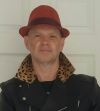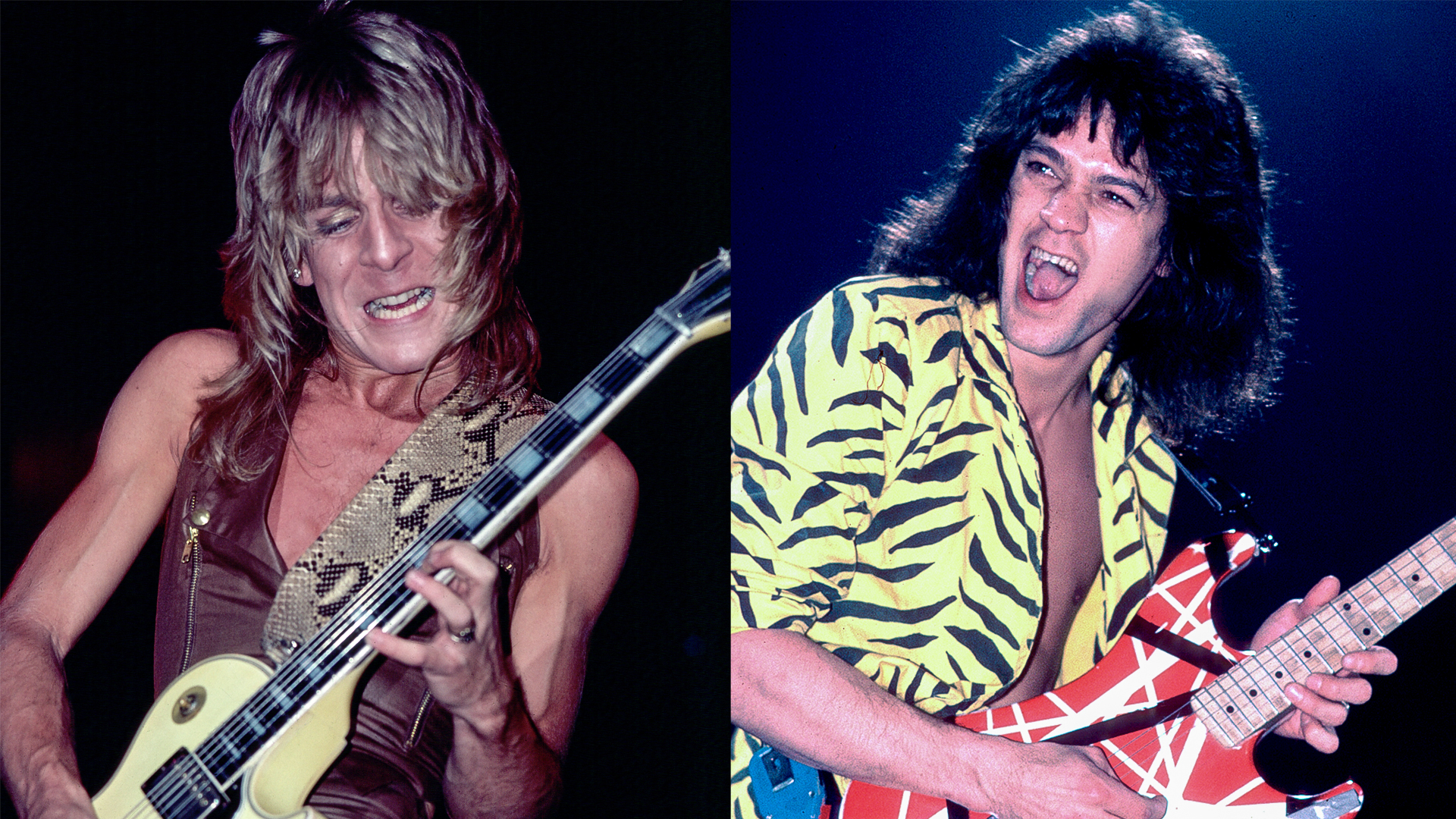Dion DiMucci Talks Longevity, Faith and Casting Great Guitarists for an All-Star Blues Record
From '50s teen idol to blues man, Dion keeps the music going on his star-studded new album, 'Blues With Friends.'
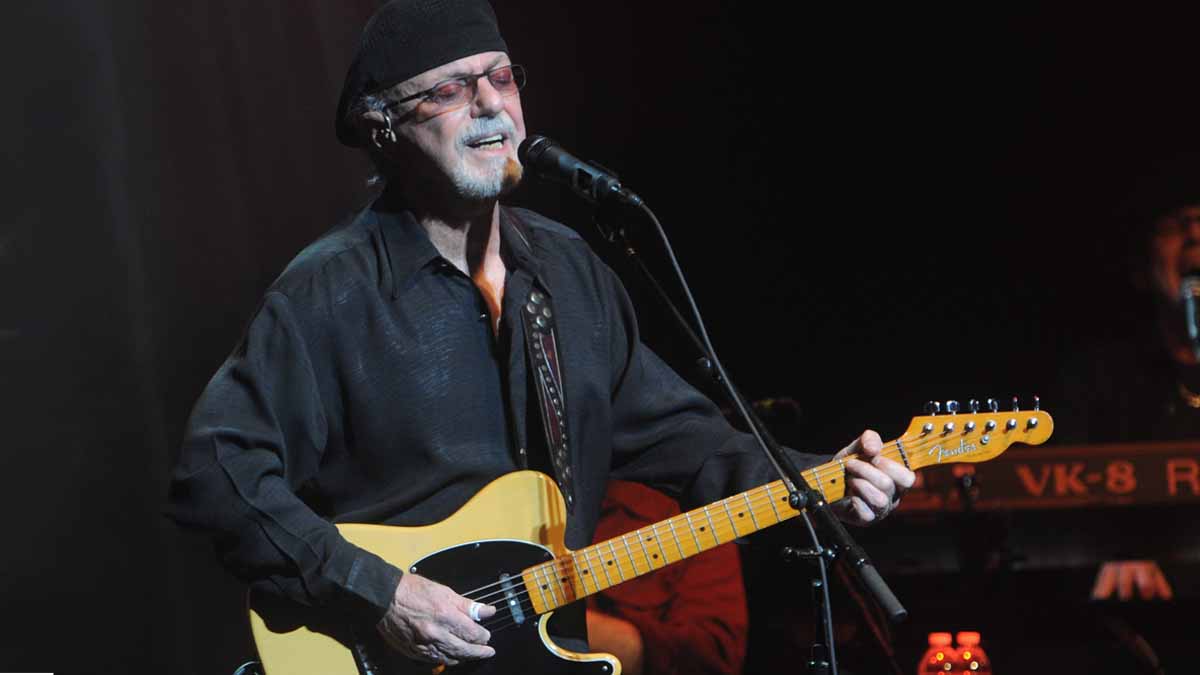
All the latest guitar news, interviews, lessons, reviews, deals and more, direct to your inbox!
You are now subscribed
Your newsletter sign-up was successful
The word legend is one of the most overused terms in music journalism, but it’s a fair word to describe Dion DiMucci, one of rock and roll’s original celebrated artists.
He started out as the lead singer for the late-’50s doo-wop group Dion and the Belmonts before breaking off on his own to launch a career in rock and roll and folk. There's perhaps no other artist from that era who has continued to enjoy the sustained artistic and commercial success that Dion has.
From early signature hits like “The Wanderer,” “Runaround Sue” and “Teenager in Love” through to his civil rights–era smash “Abraham, Martin and John,” and continuing through to the present day, Dion has consistently created great records that make good on his lifetime mission statement: “to be able to communicate like Hank Williams and groove like Jimmy Reed.”
I played on all my hit records. Back in the ’50s, every time I did an appearance on TV, the record company would say, 'Put the guitar down. Lead singers don’t play the guitar on TV.' They wanted me to be like a nightclub act or something
Though he's instantly identifiable as the singer on those classic hits, most people aren’t aware that Dion wrote the majority of them. Even fewer know that he actually played guitar on all of his hit records.
A lifetime blues fan, Dion is a gifted fingerstyle blues guitarist and has released a steady stream of essential blues albums over the past 10 years.
His latest, Blues With Friends (Keeping the Blues Alive Records), may be the strongest of his career and features a long list of guitar guests that includes Jeff Beck, Joe Bonamassa, Billy Gibbons, Joe Louis Walker, Brian Setzer, Sonny Landreth, Samantha Fish, John Hammond Jr., Rory Block, Jimmy Vivino, Joe Menza, Bruce Springsteen and Steven Van Zandt, all of whom were eager to show their love for the man and the body of work he's created.
Now 81, Dion sounds as energized, enthusiastic and vital as someone half his age.
All the latest guitar news, interviews, lessons, reviews, deals and more, direct to your inbox!
How much blues were you exposed to in the 1950s? Was it easy to get ahold of in the Bronx?
No. I discovered it on a night-time radio channel from Virginia, I think. There was a record shop in my neighborhood. I made friends with the owner, and he used to call me up when a new Jimmy Reed or Hank Williams record or whatever came in.
Were you always a guitarist?
I played on all my hit records. Back in the ’50s, every time I did an appearance on TV, the record company would say, “Put the guitar down. Lead singers don’t play the guitar on TV.”
They wanted me to be like a nightclub act or something. The fans didn’t know that I wrote the songs and played guitar. I used to play the songs for the Belmonts. That was how we worked them out: on guitar.
There are fantastic clips of you on YouTube where you demonstrate some fine blues fingerpicking chops. Where did you pick them up?
I picked a lot up from Jimmy Reed. That’s part of my DNA - that and Hank Williams, songs that tell stories and are worth singing. Jimmy had such a groove. I was always into grooving, never the frantic stuff.
This was the early ’60s, and I can bet that I heard Robert Johnson before Eric Clapton heard him. I was at Columbia in ’61 and [famed music producer] John Hammond Sr. played him for me. He had that same groove thing. I just started figuring stuff out myself at home. I never had lessons or anything.
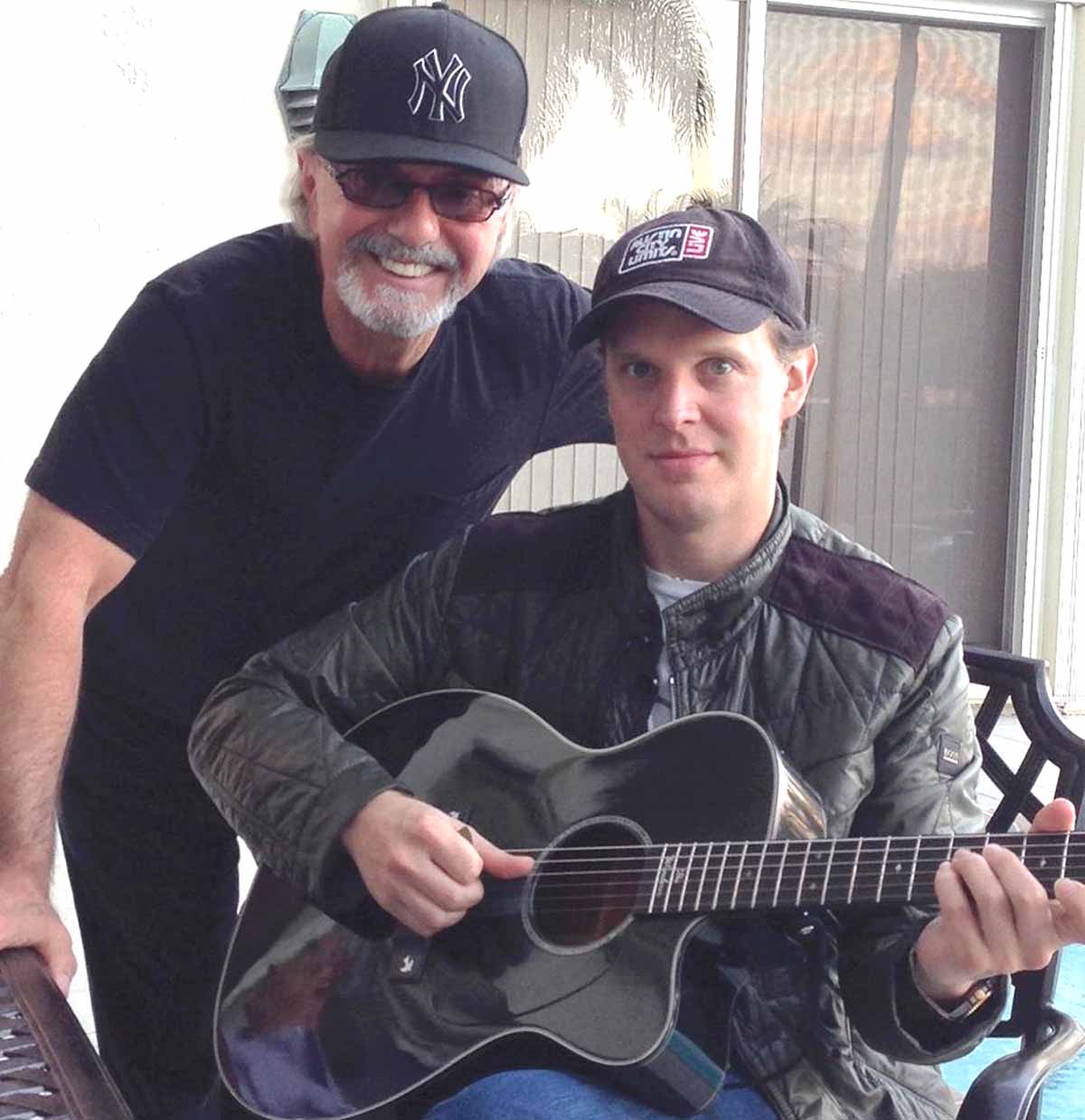
You’ve made many blues albums, but this is the first you’ve released that features guest guitarists. How did it come together, and how did you decide which songs would be best for each of the performers?
Over the past four years, I had a couple of songs left over from my last album, New York Is My Home. I started writing what I thought were some great songs. I had a couple of months in front of me, so I got together with my friend, Wayne Hood, who produced the album in his studio.
I knocked out 14 songs in three days. I started filling in the details, overdubbing guitar parts, telling him what kind of bass line I was looking for and so on. I played a track for Joe Bonamassa, who is a friend of mine, and he said he’d like to play on it. He did such a fantastic job that it got me thinking.
I’d never really done anything like this before, where I had a great artist come in with their concept and infuse a song with their vision. Joe was the catalyst and inspiration for me to try to bring some of my friends in.
The next person I thought of was John Hammond Jr. to play harp on “My Baby Loves to Boogie.” He played on that, and then I suggested he might like to try another one, “Told You Once in August,” and he did a great job on slide on that one.
I ended up being like a casting director. To get another great artist to come in and infuse the song with something they’re hearing was a very different experience.
Let’s discuss some of the new tracks. Jeff Beck’s playing on “Can’t Start Over” has that old-time Hank Williams feel.
Yeah, I know what you mean. Anything he plays is just mesmerizing. He’s one of the greatest guitarists on the planet. We have a lot of great roots in common, with his Gene Vincent/Cliff Gallup tribute album [1993’s Crazy Legs].
He loves rock and roll. He’s the only guitarist who can make me cry. I thought about Jeff for this one, and he came back really quickly. I sent him the song, as he was in England, and when I heard what he did, I was so knocked out.
There is some excellent soloing on “My Baby Loves to Boogie.” Which solo is yours, and which is your producer, Wayne Hood’s?
I play the first solo. Wayne, who is a good guitar player, played the country-sounding solo, but the rest is me. I was going for a John Lee Hooker feel on this song. When I was growing up, blues was all shuffles, like John Lee and Jimmy Reed and T-Bone Walker.
The way Sonny Landreth plays slide, the way he plucks the guitar, it’s like a great violinist. I love every sound he produces. He’s like a surgeon. He must have spent hours in the garage woodshedding
We never played straight eights. I have that naturally in my blood. I talked a lot about that to Van Morrison, who appears on “I Got Nothin’.” I always say that a lot of young kids know how to rock, but they don’t know how to roll.
“Bam Bang Boom” is a perfect fit for Billy Gibbons.
I’ve been a fan of his since Tres Hombres, or maybe earlier. He’s always had a very distinctive sound. He’s like Muddy Waters or John Lee Hooker on steroids. I wanted him to do a song kind of like [Bo Diddley’s] “I’m a Man.”
This song seemed ideal for Billy. He is one of a kind - a renaissance man, a real intelligent guy, a thinker. I love the way he communicates, whether it’s writing, playing, visually or even talking. He’s got his own thing.
There are a few tracks featuring great slide playing. Besides John Hammond, who you mentioned earlier, there’s Sonny Landreth on “I Got the Cure.”
We’re talking about a great artist. The way Sonny plays slide, the way he plucks the guitar, it’s like a great violinist. I love every sound he produces. He’s like a surgeon. He must have spent hours in the garage woodshedding. He brings something unique to the song.
Joe Bonamassa’s slide playing on “Blues Coming On” takes a totally different approach.
Joe is an ensemble player. He listens. It seems like any little thing you do, any inflection in a word, he responds to or plays with it. It amazed me. When he played the last three solos, I was thinking of Miles Davis, John Coltrane and Thelonious Monk all put together.
I don’t know where the hell he went. Again, you can’t plan this stuff. These guys are really great artists. I think that, maybe because it isn’t their album, they feel a bit more freedom and a bit less pressure, and they really just go for it.
Brian Setzer certainly tears it up on “Uptown No. 7.”
I was trying to put a song together like the old-time gospel groups, like the Golden Gate Quartet. Think of gospel and you get a lot of train metaphors. I thought of Brian ’cause it had a rockabilly feel, but in a minor key. I sent it to him in November of last year, and he loved it.
He’d had to cancel a lot of tour dates because he’d had tinnitus. He said he had some time in a studio and that was his first outing after the tinnitus. I think maybe he was so happy to get out of the house! I never expected that - I mean who plays like that? He takes me on a trip. It’s like rockabilly from another planet.
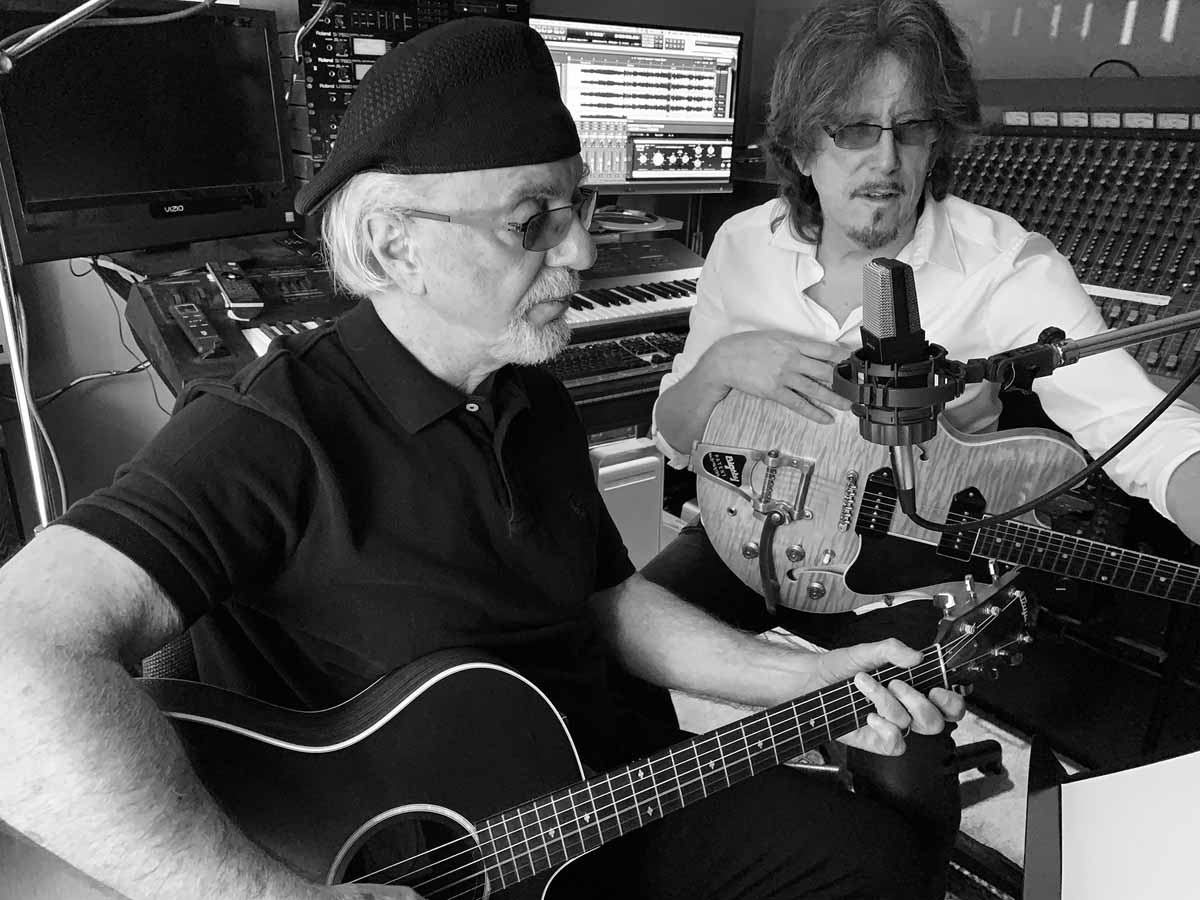
Do you think that New York is an essential part of what makes you and your music?
I think so. Especially when it comes to the blues. If you’re not crying, you’re usually bragging. In New York, you get that over-the-top, tongue-in-cheek arrogance. Through the years, I’ve had songs like “The Wanderer,” “King of the New York Streets” and “I’m Your Gangster of Love,” and on this album it’s “I Got the Cure” - those songs where you kinda brag.
I love that. I think where you come from or who you’re listening to are the things that shape you. I was in the Bronx, but I didn’t like the Italian singers, who were big there at the time. I liked Hank Williams and blues.
There are so very few artists from the 1950s who are even still with us, let alone making great music. Do you feel like a survivor?
I was at the Rock and Roll Hall of Fame in 2010, and they were premiering a video that I did for them about the last Buddy Holly tour. [Writer] Dave Marsh was there doing a Q&A with me, and at one point he said to me that I was the only guy that charted records in the ’50s who has been vital and creative all through the decades.
I started to say not really, but when he asked me to name somebody, I couldn’t name anyone who was still writing and putting out albums. When I got home, I told my wife, and she challenged me. She said, “Well, what are you going to do about it?” And that’s when I put out a whole trilogy of blues albums. And I’m still just carrying on, y’know?
What’s the secret to longevity in the music business?
I’ll be honest: Back in 1968, I was a drug addict - a heroin addict. I’d been doing drugs for 15 years. Ever since I was 14, I was screwing with drugs. In February ’68, my friend Frankie Lymon died. [Lymon was famous as the lead singer for the Teenagers, who achieved fame with their 1956 hit “Why Do Fools Fall in Love.”] And it just scared me and brought me to my senses.
I got on my knees one night and I said a prayer. I said, “God, I don’t know what I’m doing. You’ve got to show me something. If you’re real, help me out.” This guy from a 12-step program started talking to me, and I haven’t had a drug or a drink since April 1968. That is one big secret to my longevity - that I haven’t smoked or drank for over 50 years.
I was always interested in music and God. I like to read St. Thomas Aquinas and St. Augustine. They’re big inspirations in my life. I like to stay connected with the one who created the universe. I think I stayed healthy. If you could see inside my head, you’d see it is a very orderly place.“
Are you a no-regrets guy, or do you wish you’d done some things differently?
I’m not one of those no-regrets guys. I don’t know how life works itself out. Maybe there are some things I should’ve done differently, but I’m happy with where life is now. I’m enjoying making music, and I think the new record shows that I’m still committed to trying to be true to my creative spirit.
Mark is a freelance writer with particular expertise in the fields of ‘70s glam, punk, rockabilly and classic ‘50s rock and roll. He sings and plays guitar in his own musical project, Star Studded Sham, which has been described as sounding like the hits of T. Rex and Slade as played by Johnny Thunders. He had several indie hits with his band, Private Sector and has worked with a host of UK punk luminaries. Mark also presents themed radio shows for Generating Steam Heat. He has just completed his first novel, The Bulletproof Truth, and is currently working on the sequel.





